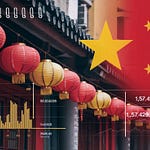In an interview, former Brazilian President Dilma Rousseff discusses her perspective on China's Belt and Road Initiative, emphasizing its potential for Brazilian industrial development and technological transfer. She advocates for Brazil's participation in the initiative, highlighting its non-exclusive nature and the potential for collaboration with other international partners. Rousseff also touches upon the need to shift away from a traditional division of labor in the global economy, emphasizing the importance of technological innovation and moving towards a more balanced partnership with developed nations.
She further discusses the New Development Bank (NDB), also known as the BRICS bank, which she heads, focusing on its efforts to promote sustainable development and increase financing for the private sector, particularly in the South Global region. Rousseff highlights the NDB's commitment to using local currencies, reducing dependence on the dollar, and fostering greater economic independence. She also expresses concern about the resurgence of anti-communism and the growth of far-right movements globally, emphasizing the need for a more nuanced understanding of China's approach to governance and the importance of avoiding Cold War rhetoric.















Share this post